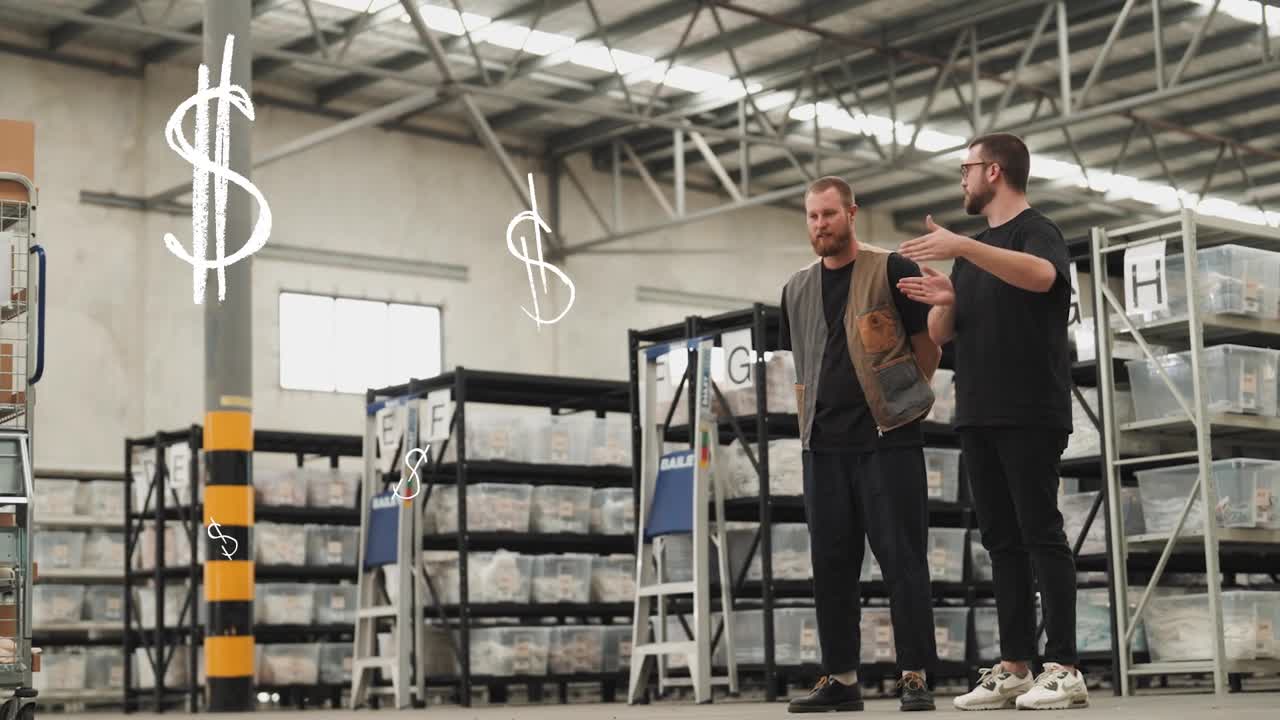To learn more, head to our WMS Buyers’ Guide.
The goods receipt process is the lynchpin of any warehouse. If any problems occur here, then it can and will cause trouble for you further down the line. We create unbeatable workflows for ecommerce warehouses, helping brands improve their warehouse efficiency for good.
The flow of stock at goods-in is absolutely critical; we’re familiar with every issue that can be faced during the goods receipt process. In this blog, we cover 8 of the biggest problems and show you how you can reclaim your time and eliminate warehouse chaos at goods-in.
8 Common Problems with Goods Receipt
Problem 1: Manually Counting items
Physically counting items as they arrive into the warehouse.
Impact
Doing a manual count is vastly inefficient because it increases the cost of labour and lowers the return. It also increases the risk of mistakes being made and inaccurate stock figures appearing online.
How to solve it
Solving this problem requires precision during the goods receipt process, and the best way to achieve this is by using an easy-to-use warehouse management system (WMS) that incorporates barcode scanning. The use of barcodes eliminates the margin for human error and ensures that all delivered items are correctly recorded. As a result, the correct stock figures are listed online, meaning fewer oversells or missed sales opportunities.
Problem 2: Paper-Based System
Relying on a paper-based system and manually writing down what is delivered.
Impact
Using a paper-based system and keeping a written account of what has been delivered can lead to inaccurate checks, incorrect stock figures, and misplaced or lost orders. It is also highly inefficient, costing more labour than it returns.
How to solve it
Your aim at goods-in is to eliminate all margin for human error. Switching out your pen and paper for a more accurate barcode scanner will speed up this process and greatly reduce the potential for any errors. Using a WMS can entirely eliminate paper, reducing all the risks listed above, while also improving speed and efficiency. The impact here isn’t just felt at goods-in, but across the whole warehouse. Eliminating paper will help you to ship every order on time, without fail.
Problem 3: No Goods Receipt Process
There is no set method for inventory receiving.
Impact
By not having a goods-in process, you are required to do more regular stock takes to constantly ensure that the inventory figures listed online are correct. This is time-consuming, costly, and inefficient.
How to solve it
Quite simply, put a process in place. Goods-in is the heart of your warehouse because every later process depends on this being performed correctly. Using workflows that log, count, and register your inventory as it enters the warehouse will provide benefits throughout the entire order fulfillment journey.
Problem 4: Slow Goods Receipt process
Inventory receiving is a bottleneck for your business.
Impact
Much like having no process at all, if you have one that is inefficient, then you will be wasting time, money, and resources that could be better spent elsewhere.
How to solve it
Work out where the kinks are in your current processes and focus on how to smooth them out. More times than not, the goods-in process is slow because of the humans working it, so to really optimise your system, automation is key. Here’s how to receive goods-in without scanning every single item.
Problem 5: Delay in Items for Sale
There is a delay between items being delivered and being available for sale online.
Impact
The longer it takes for your inventory to register online, the larger the window for missed sales opportunities.
How to solve it
If your process currently involves uploading a CSV file or similar into your ecommerce software, then the best solution is to find a WMS that integrates with this platform and cuts out the file uploading. With a decent WMS, your inventory figures should be updated across all platforms as soon as they are scanned at goods-in.
Problem 6: Limited Visibility
No tracking or visibility of the delivery performance: time, cancellations, mis-shipments.
Impact
This problem makes it difficult to monitor KPIs, judge performance and replace the services if needed.
How to solve it
Option 1 is to put manual task recording in place. You may already be doing this if you’re reporting on these metrics to your management team.
Option 2 is to put some manual time tracking software like Harvest in place. This can help with understanding where your team spend their time.
Option 3 is to look at advanced software for warehouse management and carrier management. Both these pieces of software will deliver the visibility on delivery performance you need. A good CRM like Salesforce could also help with tracking any issues that do arise in a standard way you can report on.
Problem 7: Not Checking against a PO
Not checking inventory received against a purchase order (PO).
Impact
If you do not check your goods received against a PO then you will require regular stock takes to ensure correct inventory levels. You also open yourself up to more lost sales opportunities, dissatisfied customers, and potential over payment for stock.
How to solve it
With a warehouse management system, as goods are scanned in they will be automatically reconciled against a PO. This not only eliminates the need for this to be done manually, but it also speeds up the process and saves time and labour.
Problem 8: checking large quantities
Items arriving in pallets with large quantities to inspect.
Impact
If you have items arriving like this, it is difficult to unwrap and check each item, which can lead to inaccurate stock figures. Inaccurate stock figures can then lead to missed sales opportunities or overselling.
How to solve it
Barcode label the pallet and assign the products to the unique pallet label. This enables you to move pallets around efficiently. You can also store inner, outer, and pallet quantities in a WMS and use your software to calculate quantities based on defaults.
The key thing to have available if you go down this route is the ability to overwrite the default quantity if you need to.
For more information about how Peoplevox’s unbeatable workflows will enable you to ship every order on time, without fail, explore our software.






